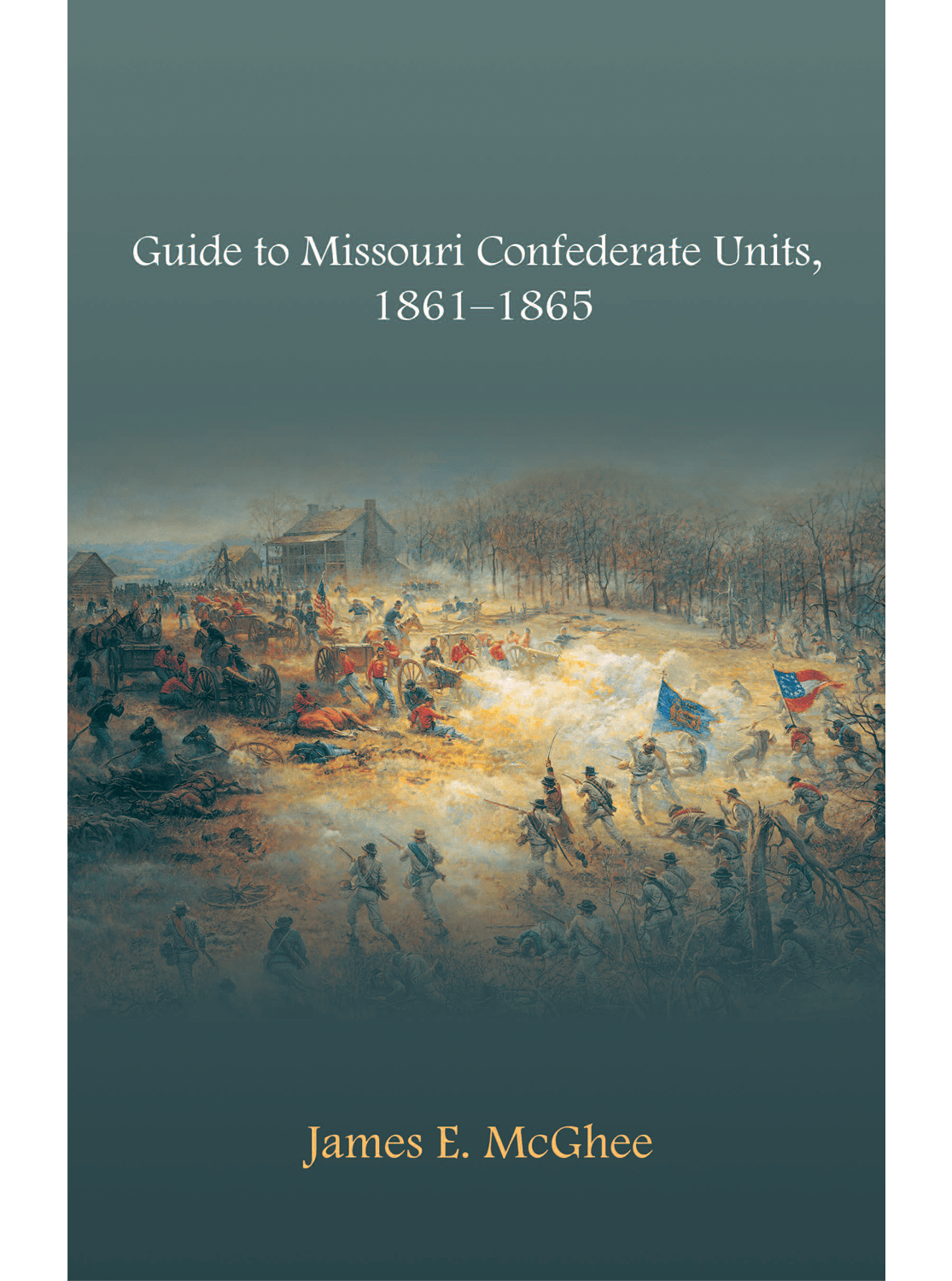Tracing the origins and history of Missouri Confederate units that served during the Civil War is nearly as difficult as comprehending the diverse politics that produced them. Deeply torn by the issues that caused the conflict, some Missourians chose sides enthusiastically, others reluctantly, while a number had to choose out of sheer necessity, for fence straddling held no sway in the state after the fighting began. The several thousand that sided with the Confederacy formed a variety of military organizations, some earning reputations for hard fighting exceeded by few other states, North or South. Unfortunately, the records of Missouri’s Confederate units have not been adequately preserved—officially or otherwise—until now.
James E. McGhee is a highly respected and widely published authority on the Civil War in Missouri; the scope of this book is startling, the depth of detail gratifying, its reliability undeniable, and the unit narratives highly readable. McGhee presents accounts of the sixty-nine artillery, cavalry, and infantry units in the state, as well as their precedent units and those that failed to complete their organization. Relying heavily on primary sources, such as rosters, official reports, order books, letters, diaries, and memoirs, he weaves diverse materials into concise narratives of each of Missouri’s Confederate organizations. He lists the field-grade officers for battalions and regiments, companies and company commanders, and places of origin for each company when known. In addition to listing all the commanding officers in each unit, he includes a bibliography germane to the unit, while a supplemental bibliography provides the other sources used in preparing this unique and comprehensive resource.
James E. McGhee is a retired lawyer from the Missouri Department of Labor and now devotes himself to the study of the Civil War. He has written and edited a number of books focusing on the war in his home state, including Missouri Confederates.
“A most useful guide to a subject that has long been neglected, and McGhee deserves high marks for the tremendous amount of research that obviously was required.”
—Journal of America’s Military Past
“Deeply researched, skillfully compiled and deftly organized, and remarkably complete . . . authoritative.”
—Civil War Books and Authors
The Civil War in the West has a single goal: to promote historical writing about the war in the western states and territories. It focuses most particularly on the Trans-Mississippi theater, which consisted of Missouri, Arkansas, Texas, most of Louisiana (west of the Mississippi River), Indian Territory (modern day Oklahoma), and Arizona Territory (two-fifths of modern day Arizona and New Mexico) but encompasses adjacent states, such as Kansas, Tennessee, and Mississippi, that directly influenced the Trans-Mississippi war. It is a wide swath, to be sure, but one too often ignored by historians and, consequently, too little understood and appreciated.
Topically, the series embraces all aspects of the wartime story. Military history in its many guises, from the strategies of generals to the daily lives of common soldiers, forms an important part of that story, but so, too, do the numerous and complex political, economic, social, and diplomatic dimensions of the war. The series also provides a variety of perspectives on these topics. Most importantly, it offers the best in modern scholarship, with thoughtful, challenging monographs.
Secondly, it presents new editions of important books that have gone out of print. And thirdly, it premieres expertly edited correspondence, diaries, reminiscences, and other writings by participants in the war.
It is a formidable challenge, but by focusing on some of the least familiar dimensions of the conflict, The Civil War in the West significantly broadens our understanding of the nation’s most pivotal and dramatic story.
—Daniel Sutherland, from the preface of I Do Wish This Cruel War Was Over

